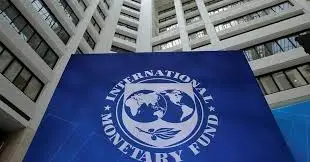IMF cites ‘enterprise risks’ for Pakistan amid tensions with India; lists 11 new structural benchmarks to avail loan

The International Monetary Fund (IMF) has warned about rising “enterprise risks” in Pakistan. These risks come as tensions escalate with neighboring India. The IMF’s latest report lists 11 new structural benchmarks Pakistan must meet to access further loan disbursements under its bailout program.
Rising Geopolitical Tensions Impact Economy
The ongoing conflict between Pakistan and India is increasing economic uncertainty. The IMF notes that these tensions raise risks for businesses and foreign investors. Consequently, this could slow economic growth and delay reforms that Pakistan urgently needs. The political environment is adding pressure to an already fragile economy.
New Structural Benchmarks from the IMF
To receive additional loan tranches, Pakistan must fulfill 11 structural benchmarks. These targets focus on improving governance, fiscal discipline, and the business climate. Below are some of the key benchmarks:
- Boost Tax Collection: Enhance tax administration to increase government revenues.
- Public Sector Reforms: Restructure state-owned enterprises to ease financial burdens.
- Energy Sector Improvements: Cut inefficiencies in energy subsidies and promote sustainability.
- Financial Sector Stability: Strengthen banking regulations to support credit growth.
- Anti-Corruption Efforts: Enforce stricter measures to reduce corruption and attract investors.
- Governance Transparency: Increase accountability in public finances and procurement.
- Private Sector Growth: Improve ease of doing business to attract investment.
- Social Protection: Expand safety nets for vulnerable groups affected by reforms.
- Monetary Policy Tightening: Control inflation and stabilize currency.
- Debt Management: Create a sustainable plan for managing debts.
- Trade Policy: Lower trade barriers and boost export competitiveness.
Pakistan’s Economic Challenges and IMF Program
Pakistan faces high inflation, large fiscal deficits, and low foreign reserves. The IMF bailout aims to restore economic stability. However, political uncertainty and reform delays have slowed progress. Furthermore, tensions with India add complexity to Pakistan’s economic recovery.
Expert Insights
Analysts warn that missing these benchmarks may delay IMF loan releases. This could worsen Pakistan’s debt problems and trigger a payments crisis. An Islamabad economist said, “Geopolitical risks make the situation more fragile. Pakistan must speed up reforms to regain investor trust.”
Conclusion
The IMF’s warnings highlight the difficulties Pakistan faces. The combination of geopolitical tensions and economic challenges creates a tough environment. Success in meeting the IMF’s benchmarks is crucial. It will help Pakistan secure loans and build a stable economic future despite regional uncertainties.






